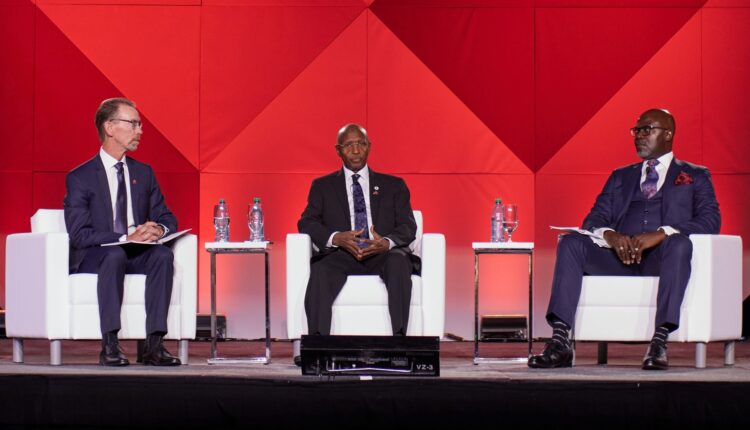APPO, African Refiners Association Voice Discontent on Energy Transition Agenda
African Petroleum Producers Organisation (APPO) and African Refiners and Distributors Association (ARDA) have expressed their displeasure with how the global energy transition agenda is being presented to African countries.
In a press release published by Upstream Online, and obtained by The Energy Republic, the two executives from African industry associations voiced their discontent on the agenda during a panel session at the 24th World Petroleum Congress (WPC), held from 17 – 21 September 2023.
In his words, Omar Farouk Ibrahim, Secretary General of the African Petroleum Producers Organisation (APPO), said the same metrics on energy transition cannot be applied to developed countries and poorer nations in Africa.
According to him, “Africa is not against the energy transition. That is not the case. To the developed countries of the world, energy transition or the challenge of energy is a matter of comfort,” Ibrahim told a plenary session on Thursday at the 24th World Petroleum Congress in Calgary, Alberta, Canada.
“If there is no energy to you [developed nations], it is a little less comfort than what you have. To Africa, it is an existential challenge.”
He argued many in Africa are dying daily from inhaling toxic fuels because many countries do not have better sources of energy.
“For us, fossil fuel is a much better source of energy than to use cow dung and sticks and so on to heat our homes,” Ibrahim said.
Speaking on the same panel session, Anibor Kragha, Executive Secretary at the African Refiners and Distributors Association (ARDA), said that for Africa to start the energy transition, the continent must first require energy to begin with.
He raised the question: “If 800 million Africans do not have access to basic modern energy, what are we transitioning to?”
“Fundamentally, to support the energy transition, we need that Africans have their own unique, distinct, peculiar plan by Africans for Africans.”
Kragha said the African continent contributes a tiny fraction of the world’s entire carbon dioxide emissions, with the bulk coming from the European Union, North America, and Asia.
“You cannot be telling us to have the same energy transition plan. That is basically what we are saying. We have to come up with a plan that is important and works for everyone,” said Kragha.
He said Africa does not require renewable energy sources like green hydrogen right now, but instead needs liquefied petroleum gas so that citizens on the continent have means to cook their food.
“Focus on what Africa means for Africans. We are 54 different countries and 54 peculiar cultures,” he told the panel.
“Let’s focus on how to understand that and ensure that we are executing the projects in line with the transition for Africa’s immediate needs and then, in the long term, when the renewables technology becomes more cost-effective, bring it up.”



